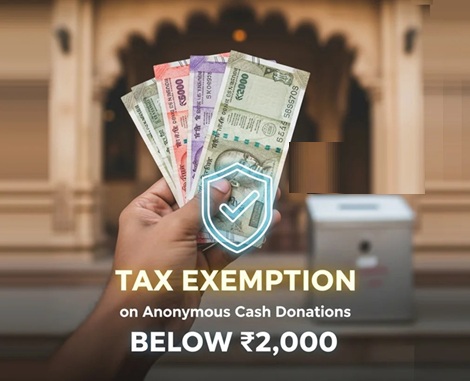Prelims: (Polity + CA)
Mains: (GS 2 – Governance, polity) |
Why in the News ?
The Supreme Court has agreed to review a petition challenging the rule that allows political parties to accept anonymous cash donations below ₹2,000. Petitioners argue that this provision enables opaque and untraceable political funding, undermining transparency and citizens’ right to information.
What Concern Has the Petition Highlighted ?
Total Ban on Cash Donations
- The plea seeks to abolish cash donations permitted under Section 13A(d) of the Income Tax Act, 1961, which currently allows contributions below ₹2,000 without donor disclosure.
- It calls for complete transparency by mandating full donor identification.

Violation of Fundamental Rights
- Section 13A(d) is claimed to violate Article 19(1)(a) by denying citizens the Right to Information on political funding—critical for informed voting.
Directions Sought for Oversight of Form 24A
- Requests the Supreme Court to direct the Election Commission of India (ECI) to strictly scrutinize Form 24A, ensuring parties disclose contributor details such as address and PAN.
- Also seeks action under Paragraph 16A of the Election Symbols Order, 1968, including suspension or withdrawal of party symbols for non-compliance.
Suggested Reforms
- Independent auditors appointed by the ECI to audit party accounts.
- Stronger mechanisms for timely filing of contribution reports and audit statements.
What Rules Govern Political Donations in India ?
Representation of the People Act (RPA), 1951
- Section 29B allows political parties to receive contributions from individuals and companies (except foreign sources or government companies).
Companies Act, 2013
- Companies older than three years can donate up to 7.5% of their average net profits from the last three years.
Income Tax Act, 1961
- Donations made to political parties or electoral trusts qualify for tax deductions under Sections 80GGB and 80GGC.

Foreign Contributions Regulation Act (FCRA), 2010
- Foreign donations are generally banned.
- But amendments allow Indian companies with foreign shareholding beyond 50% to donate, subject to FEMA sectoral caps.
Electoral Trusts Scheme, 2013
- Trusts can collect donations and distribute 95% of funds to political parties.
- Cash donations are prohibited.
Why Transparency in Political Funding is Essential?
Informed Political Choice
- Voters must know who funds political parties.
- The SC (2024) struck down the Electoral Bond Scheme for violating RTI under Article 19(1)(a).
Institutional Probity
- Transparency reduces quid pro quo, checks corruption, and ensures unbiased policy-making.
National Security
Preventing Market Distortion
- Hidden corporate funding fuels crony capitalism, harming economic fairness and competition.
Preserving Egalitarian Democracy
- Opaque funding risks creating a plutocracy, undermining equality in political participation.
Aligning with Global Standards
- Many democracies—including the U.S. since 1910—mandate transparent reporting of political contributions.
What Reforms are Needed for Transparent Political Funding ?
1. End Anonymous Cash Donations
- Amend Section 13A(d) by removing or reducing the ₹2,000 cash limit.
- Shift fully to digital transactions for a verifiable audit trail.
2. Enforce Transparent Accounting
- Implement recommendations of the 170th Law Commission Report, including removal of Section 77 Explanation 1 (RPA) to ensure all expenditure is accounted for.
3. Strengthen Institutional Enforcement
- Empower the ECI to de-register non-compliant parties.
- Independent auditors should assess party accounts.
- RBI and SEBI must strengthen oversight of corporate political donations.
4. Real-Time Disclosure Mechanisms
- Political parties must upload donor details on a central ECI portal.
- Integrate with the Income Tax Department to verify donations and detect irregularities automatically.
5. Systemic & Long-Term Reforms
- Consider partial state funding (e.g., public airtime, limited campaign resources) as recommended by:
- Indrajit Gupta Committee (1998)
- Law Commission Report (1999)
- Introduce national expenditure limits and real-time monitoring.
FAQs
1. What rule is being challenged in the Supreme Court?
The rule allowing anonymous cash donations below ₹2,000 to political parties under Section 13A(d), Income Tax Act.
2. Why is this rule considered problematic?
It creates a loophole for untraceable political funding, reducing transparency.
3. Which fundamental right is cited in the petition?
Article 19(1)(a) – the voter’s Right to Information on political funding.
4. What action is sought from the Election Commission of India (ECI)?
Strict scrutiny of Form 24A and action against parties that do not disclose donor details.
5. What reforms are proposed for political funding?
Ban anonymous cash donations, mandate digital payments, strengthen audit and reporting systems.
|



